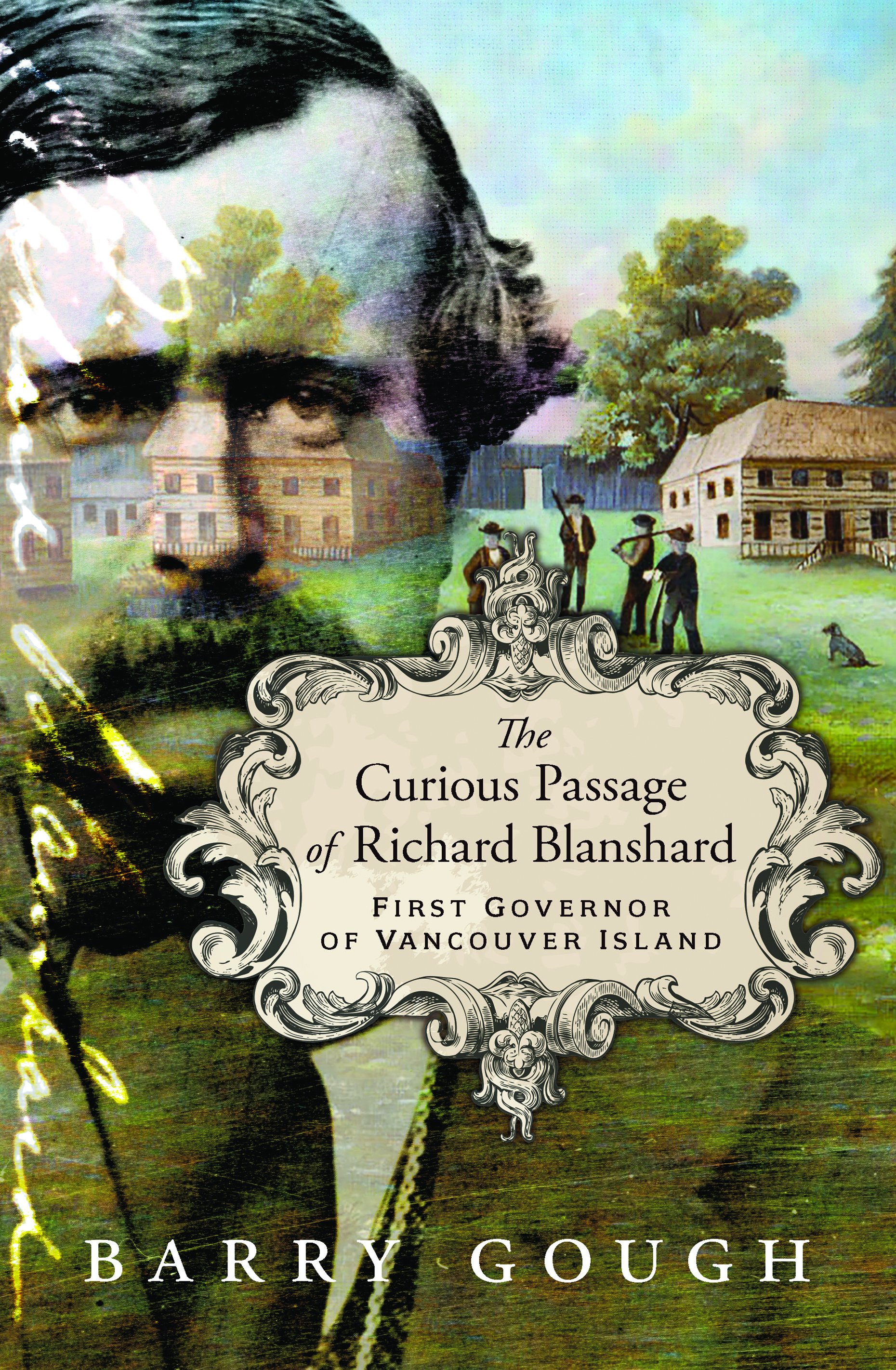Book Reviews

Welcome to the Book Review section of the Canada History Society website, where history comes alive through the written word. This dedicated space is your gateway to exploring insightful critiques and analyses of books that shape, challenge, and deepen our understanding of Canada’s past.
Richard Blanshard

The Curious Passage of Richard Blanshard: First Governor of Vancouver Island by Barry Gough
Barry Gough’s The Curious Passage of Richard Blanshard: First Governor of Vancouver Island is a meticulously researched and compelling account of an oft-overlooked figure in Canadian colonial history. Gough, a distinguished historian and authority on maritime and Pacific Northwest history, brings his characteristic depth and narrative flair to this examination of Richard Blanshard, the first governor of Vancouver Island. Through this book, Gough not only revives the story of a man whose tenure was brief and fraught with challenges but also provides a lens into the complexities of British colonial administration and settler-indigenous relations in the mid-19th century.Setting the Stage: A Fragile Colony
The book begins by situating readers in the nascent colony of Vancouver Island in the 1840s, a time of geopolitical tension and economic experimentation. Vancouver Island, initially established as a Hudson’s Bay Company (HBC) colony, was sparsely populated and strategically significant. Gough vividly portrays the challenges faced by colonial administrators in this remote and underdeveloped outpost, emphasizing the dual tensions of managing relations with Indigenous peoples and encouraging settlement under the shadow of the HBC’s commercial monopoly.
Blanshard, a relatively obscure figure in British administrative circles, was appointed governor in 1849. Gough delves into the circumstances of this appointment, painting a picture of a man whose idealistic aspirations and professional inexperience would come to define his tenure. This period, as Gough astutely notes, was characterized by “the uneasy intersection of imperial ambition and local pragmatism, a crucible in which governance was as much a question of personality as policy” (Gough, p. 43).
Blanshard’s Governorship: Trials and Tribulations
Gough’s analysis of Blanshard’s governorship is the heart of the book. From the outset, Blanshard faced insurmountable obstacles: a lack of support from the British government, opposition from the entrenched Hudson’s Bay Company leadership, and isolation in a colony that lacked infrastructure and settlers. Gough captures Blanshard’s growing frustration as he attempted to assert his authority in a colony effectively controlled by James Douglas, the powerful HBC Chief Factor who would later succeed Blanshard as governor.
Through detailed archival research and engaging prose, Gough illustrates Blanshard’s struggles to navigate the competing interests of the Crown, the HBC, and the Indigenous peoples of Vancouver Island. His tenure was marked by a series of setbacks, from disputes over land allocation to his inability to secure meaningful financial or logistical support from London. As Gough notes, “Blanshard’s governorship was a cautionary tale of the pitfalls of imperial overreach, where grand ambitions were undermined by the realities of distance, communication, and local politics” (Gough, p. 102).
Departure and Legacy
Blanshard resigned in 1851, having served only two years. His departure marked the end of a brief and turbulent chapter in Vancouver Island’s history. Gough examines the fallout from Blanshard’s resignation and the transition to James Douglas’s administration, highlighting how the colony’s governance became more aligned with the economic interests of the HBC.
The book’s latter chapters explore Blanshard’s post-colonial life, where he largely faded into obscurity. However, Gough does not leave the narrative there; instead, he reflects on Blanshard’s symbolic role in the broader context of British colonialism. As Gough concludes, “While his governorship was a failure by traditional metrics, Blanshard’s experience reveals the precarious nature of imperial governance and the human cost of colonial experimentation” (Gough, p. 183).
A Masterpiece of Microhistory
One of the book’s greatest strengths is Gough’s ability to weave Blanshard’s story into the larger tapestry of colonial history. Through Blanshard’s brief tenure, Gough explores themes of governance, power, and identity in a colonial context. The book is richly detailed, with Gough drawing on primary sources such as Blanshard’s correspondence and official colonial records. These sources are skillfully contextualized, allowing readers to understand the broader implications of Blanshard’s governorship.
Gough’s writing is both accessible and authoritative, making complex historical dynamics understandable without sacrificing scholarly rigour. His evocative descriptions of Vancouver Island’s landscape and colonial society bring the period to life, while his critical analysis ensures that the narrative remains rooted in historical reality.
Critique
While The Curious Passage of Richard Blanshard is a remarkable contribution to Canadian colonial history, its narrow focus on a single figure may not appeal to all readers. Some may find the level of detail on Blanshard’s administrative challenges overwhelming. Additionally, while Gough provides a thorough critique of the HBC’s dominance in the colony, a deeper exploration of Indigenous perspectives would have added valuable nuance to the narrative.
Barry Gough’s The Curious Passage of Richard Blanshard is a compelling and thoughtful exploration of a neglected figure in Canadian history. Through this detailed account, Gough sheds light on the complexities and contradictions of British colonial governance in the Pacific Northwest. The book is a valuable resource for historians, students, and general readers interested in the history of British Columbia and the broader dynamics of empire.
Gough’s masterful storytelling and incisive analysis ensure that Richard Blanshard’s brief governorship will not be forgotten, offering readers a nuanced understanding of the challenges and failures of imperial ambition in a remote corner of the British Empire.


